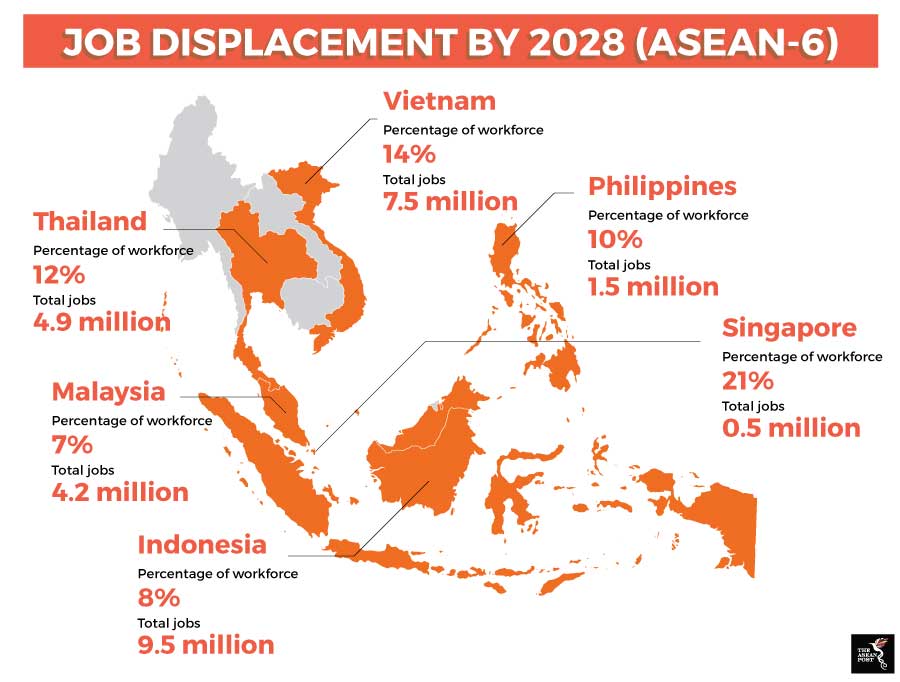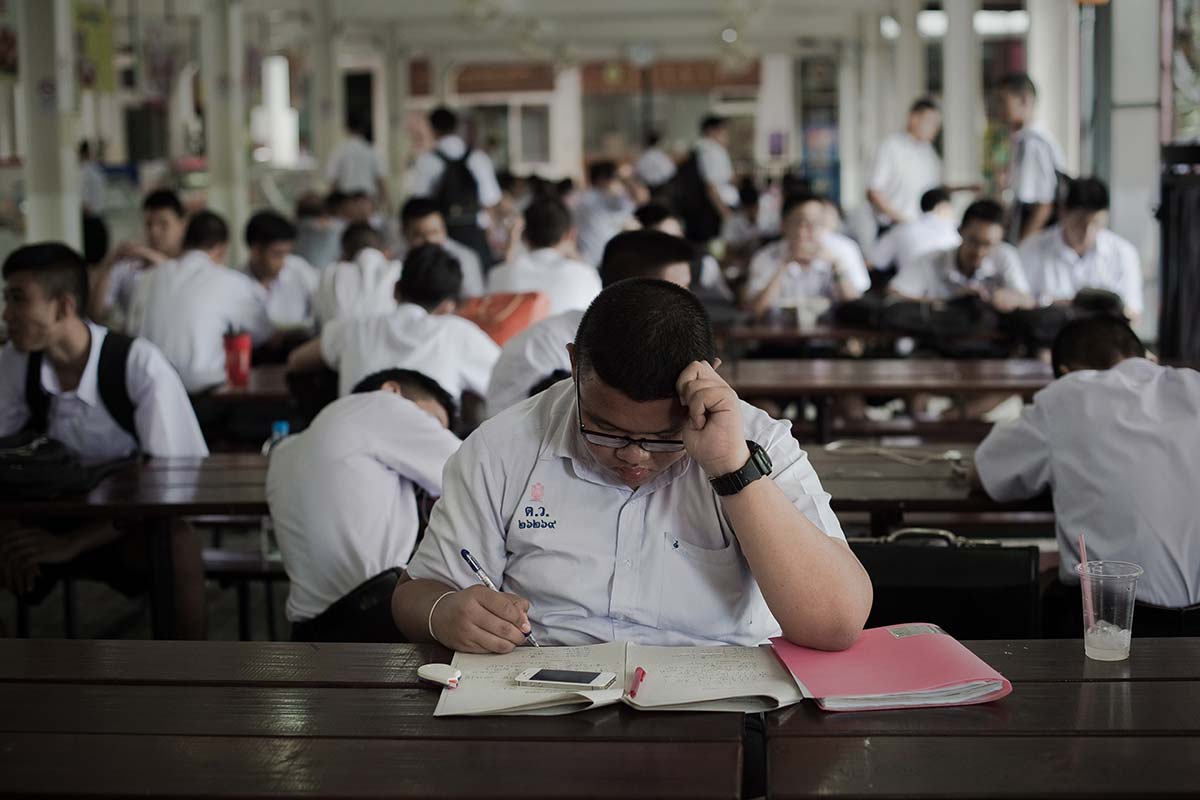Just this Tuesday, Thailand’s cabinet approved the transfer of three senior head officials from the country’s Ministry of Education amid a probe into alleged malfeasance in relation to the construction of the Songkhla Lake Aquaculture Research Centre, an aquarium and marine research centre in the southern province of Songkhla. This is the latest step in a high-profile corruption probe that the ministry is conducting.
The fact is the ministry has been engulfed in corruption scandals throughout the year. Earlier in March, an embezzlement scandal going back to 2008 involving scholarships from the Sema Phatthana Chiwit Fund worth US$3.7 million was exposed. Then in June, a preliminary investigation found irregularities in the school lunch programme allegedly committed by a school director in Surat Thani. Money was misappropriated and students were fed lunches consisting of nothing but noodles and fish sauce on some days.
Jacques Hallak and Muriel Poisson from the United Nations Educational, Scientific and Cultural Organization (UNESCO) once wrote that corruption in education is a system for personal gain which affects the quality of public goods and services, including the quality of education in different parts of the education system.
Meanwhile, Educational Policy and Administration expert David Chapman says that the more serious costs of corruption in education are incurred when children unable to afford bribes are denied access to schooling or examinations, talent is misallocated due to promotion being awarded on the basis of bribery rather than merit, and a generation of children come to believe that personal effort and merit do not count and that success comes through manipulation, favouritism and bribery.
A struggling system
Going by the Programme for International Student Assessment (PISA) scores for the last three surveys (2009, 2012 and 2015), Thailand’s education system has been struggling. In 2009, Thailand’s overall rank was 50th out of 65 countries, in 2012, Thailand was ranked 50th again out of 65 countries, and in 2015, it was ranked 54th out of 70 countries.
The World Economic Forum’s (WEF) Global Competitiveness Index 2017-2018, did not have anything different to say about the country’s education system either. For Higher Education and Training, Thailand was placed 57th out of 137 countries. Brunei was 67th, Cambodia was 124th, Indonesia was 64th, Lao was 105th, Malaysia was 45th, Myanmar was 108th, Philippines was 55th, Singapore was first and Vietnam was 84th.
If Hallak and Poisson were right in their assertion that corruption – especially in the education system - affects the quality of education, recent cases involving corruption in the education system in Thailand may indicate that this is one of the areas where the government should focus on if it intends to improve the quality of education; more so with the looming challenges of Industry 4.0 ahead.

Source: Cisco and Oxford Economics
Realising Thailand 4.0
According to a study by Cisco and Oxford Economics, Thailand could see 12 percent of its workforce (4.9 million people) losing their jobs by 2028. While the study has claimed that more jobs will be created because of the economic growth that comes with improved technology, it unfortunately also notes that ASEAN’s workforce, including that of Thailand’s, isn’t ready to fill in these new roles.
While Singapore fared poorly in the study which looked at the percentage of workers who could possibly lose their jobs to machines, it is already addressing the problem. Several different sectors including institutions of higher learning, the government and the private sector are coming together in order to create a highly-skilled Singapore workforce. Towards this end, innovation in education is also being discussed extensively.
Teerakiat Jareonsettasin, Thailand’s minister of education has consistently been trying to improve the standard of English in the country. He has also expressed his desire to infuse innovation into the curriculum in general. However, the biggest challenge he could be facing is the rampant corruption in the education system.
For one, funding allocated for new programmes might not be reaching the right people as the Sema Phatthana Chiwit Fund and Surat Thani school lunch programme scandals have shown. Another concern is that if corruption is rife in Thailand’s education system, then bribery too would also be possible, resulting in meritocracy taking a backseat.
If the government is truly committed to its Thailand 4.0 ambitions, then it will need to address corruption in the education system. While steps have been taken to clean up corruption in the past there is still much that needs to be done today. In order for Thais to make the leap to Thailand 4.0, then, corruption in education must be eradicated to ensure that meritocracy reigns supreme.
Related articles:
